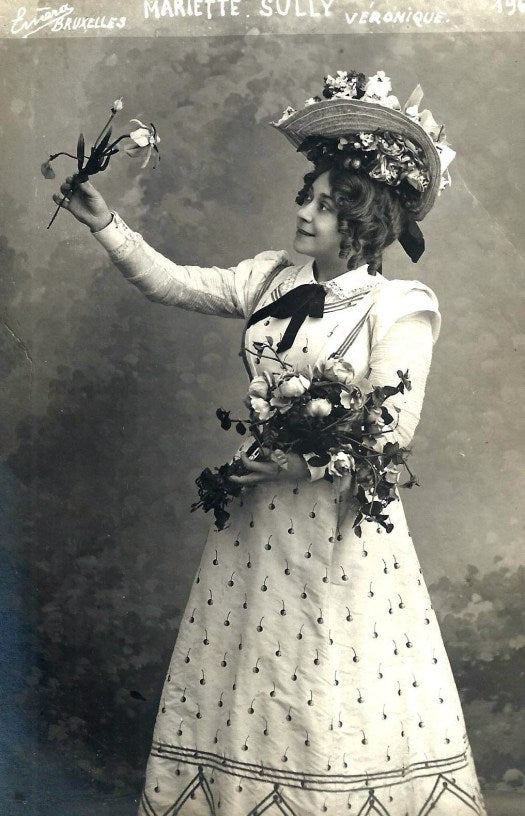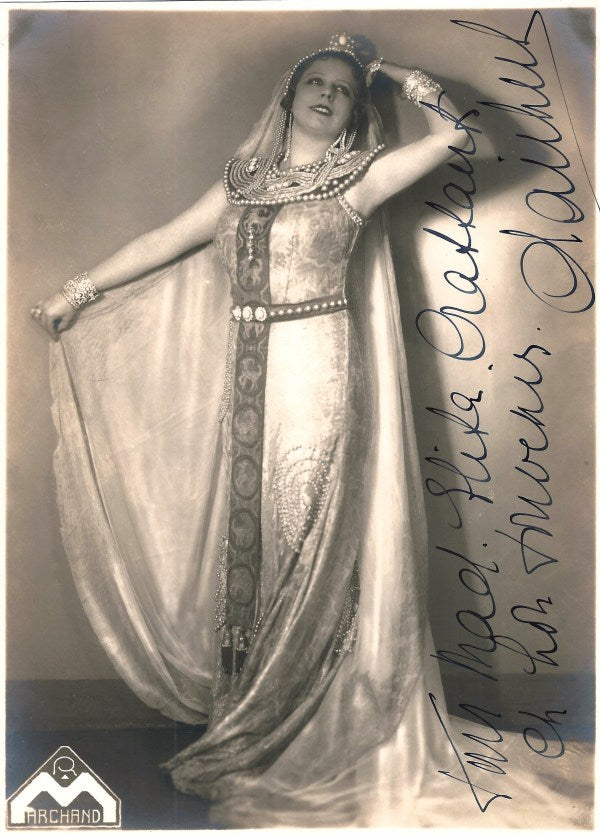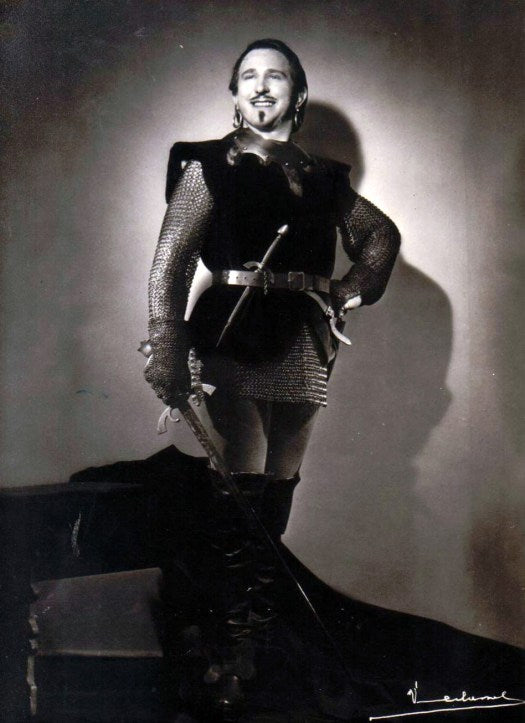Belgian Opera Singers April 18 2021
A Selection of the Most Renowned Performers
An independent country since 1830, Belgium is nested at the heart of Europe with Brussels playing host to European Union institutions, NATO and other international organizations. Due to their nation’s political and linguistic peculiarities, many Belgian artists were heralded as French or Dutch and still today, confusions arise. They were legends in their own right, locally premiering and/or creating countless operas, including in Paris since Belgian and French theatres worked closely together, but also abroad, including in the United States and South America.
1
Period engraving of the Theatre Royal de la Monnaie 1820
In 1830, Auber’s “La Muette de Portici” at the Monnaie inflamed a patriotic outburst for independence. A few months later, the official secession from the Netherlands was declared and Belgium became an independent country.

2
Soprano Giuseppina Medori (1823-1906): The indomitable primadonna
Joséphine Wilmot studied with Saverio Mercadante at Naples. She was a leading dramatic coloratura soprano in Russia, Mexico, Montevideo, Argentina, the United States, Turkey and Europe. She died in her sleep when her bedroom caught fire. She left no known recording legacy

Medori, Giuseppina in role
3
Tenor and actor Jose Dupuis (1833-1900) as Paris (“La Belle Helene”), creator’s role, Theatre des Varietes, Paris, 1864 : The operetta favorite
He was a favorite of composers such as Offenbach, Hervé, Planquette, Lecocq, Varney and a big star of the Belle Epoque, creating dozens of works. He was noted for his fabulous trills and for his wicked sense of humor. He left no known recording legacy. See also Mariette Sully (Slide 7).
4
Bass-baritone Jacques Bouhy (1848-1929): The first Escamillo in “Carmen” (1875)
A stylish musician, he created “Erostrate”, “Don César de Bazan”, “Le Bravo”, “La Clef d’or”, ”Paul et Virginie”, “Samson et Dalila”, Boito’s “Mefistofele” and “La Reine de Saba” at Monte-Carlo. He taught in New York (National Conservatory of Music of America from 1885 to 1889) and was a noted composer. He left no recording legacy.

Bouhy, Jacques as Escamillo, the role he created in 1875
5
Tenor Ernest Van Dyck (1861-1923) as Parsifal: The right man at the right time…
This erudite tenor had a short career of 15 years and compared to Georges Imbart de La Tour’s or Emile Cossira’s, his voice was effective but plain and unappealing. Recurrent Wagnerian roles and “Sprechgesang” took their toll and tarnished his voice. First Werther in Vienna (in German) in 1892. He left a recording legacy.

Van Dyck, Ernest as Parsifal
Ernest van Dyck - Siegmund (Wagner) - Wintersturme (1903)
6
Bass Charles Danlée (1864-1916) as Melot (« Tristan und Isolde») for the creation at the Monnaie, 1894: The discreet and ill-fated bass…
This supporting bass created numerous operas in Brussels between 1884 and 1914. At the outbreak of WW1 and upon director Corneil de Thoran’s recommendation, he fled to London where, due to poor health and as a result of a leg amputation, he died prematurely. He left no known recording legacy.

Danlee, Charles as Melot in Tristan & Yseult
7
Tenor Laurent Swolfs (1867-1954) as “Werther”, Royal Flemish Opera, Antwerp, 1902: The unassuming romantic hero
In high demand in romantic and heroic roles, despite some limitation in the upper register, his performances were described as “intense with pathos and musicality”. A modest man who enjoyed cycling and good wine, he fell down the stairs of his house and died short after. He left a recording legacy.

Swolfs, Laurent as Werther
Laurent Swolfs - Serenade (Gounod) in Dutch circa 1910
8
Mezzo-soprano and comedian Jeanne Maubourg (1875-1953) as the Prince Charmant (“Cendrillon”), for the creation at the Monnaie in 1899: The resourceful artist
Her career started at Algiers, where she appeared in vaudeville and comedy before tackling opera and operetta in Belgium and in France, creating numerous opus. She settled in North America and Canada, where she became a revered artistic personality. She left a recording legacy.

Maubourg, Jeanne as Prince charmant in Cendrillon
Jeanne Maubourg - L´oiseleur (valse chantée)
9
Actress and operetta soprano Mariette Sully (1878-ca. 1940) as Hélène (“Véronique”), creator’s role, Bouffes-Parisiens, Paris, 1898: The sparkling diva!
She debuted in 1893 as an actress and soon afterward, as a supporting soprano (Nice, Marseille, Monte-Carlo and Bucharest). A star of the Belle-Epoque, she toured Europe and allegedly died during WW2 bombings near Paris. See also José Dupuis (Slide 3). She left a recording legacy.

Sully, Mariette in Veronique
10
Bass Albert Huberty (1881-1955) as Basilio (“Il Barbiere di Siviglia”), Grand-Théâtre, Geneva: The exemplary bass
An imposing basso cantante sang buffo and dramatic parts (his rendition of Sir John Falstaff was considered “scathingly grandiose”). The creator of several roles, including local premières (e.g. “Louise” in Canada) in French, Russian (“The Golden Cockerel” at the Paris Opéra with Vina Bovy) and German operas. He left a recording legacy.

Huberty, Albert as Basile in Le Barbier de Seville
Albert Huberty - Sérénade (Faust)
11
Soprano Angèle Van Loo (1881-1960) as Franzi (“A Waltz Dream”), Théâtre de la Bourse, Brussels, 1918: The indispensable artist
A distinguished soprano, she created Flemish and English operettas and musicals and toured Europe, North Africa, Canada, Brazil, Mexico and Uruguay. Remembered for her astute financial abilities and benefactor during WW1 and WW2. She established an opera company, putting her safety at risk. She left a recording legacy.

Van Loo, Angèle as Franzi in Rêve de valse
Angèle Van Loo - Ton coeur (René Jacobs) circa 1928
12
Tenor and stage director Octave Dua (1882-1952) as Goro (“Madama Butterfly” for the creation at the Monnaie (1909): The resplendent comprimario
A supporting singer, he epitomized the singing actor at its best. Despite his diminutive stature and the loss of an eye, he stole the show with his mesmerizing portrayals, paying great care to make-up and mime game. He became an esteemed stage director in Belgium (Ghent). He left a recording legacy.

Dua, Octave as Goro in Madame Butterfly
13
Baritone Armand Crabbé (1883-1947) in “Marouf”: The dream voice!
Admired by Arturo Toscanini and besides operatic roles, he excelled in melodies and songs (totaling 1400 in five languages, including some of his composition!) His teaching studio held on to his reputation and he was known for his multiple infatuations, notably with soprano Laura De Winter. He left a recording legacy.

Crabbe, Armand in Marouf
Armand Crabbé - Je t´aime (Te quiero) Serrano 1928
14
Baritone Georges Villier (1884-1963) in captivity during WWI: “Nothing is impossible!”
A man of character and an attorney at law by profession, he chose the operatic career, appearing in 90 roles in Belgium, France, Algeria, Egypt, Italy, England and Lithuania. In Brussels, he premiered three Puccini operas and never ceased to promote music and foster young talents. Also a theatre and stage director, vocal coach and founder of the Quatuor Villier. He left a recording legacy.

Villier, Georges (right) in captivity 1914-1918
Georges Villier - Pour faire un brave mousquetaire, Waltz 1930
15
Soprano Fanny Heldy (1888-1973) in the title role in Obéron for the creation at the Monnaie, 1911: The resolute and much coveted soprano…
A modern soprano with a voice of ample range and brilliance, she exuded sophistication, despite her somewhat stern looks. Her humble Belgian origins did not prevent her from becoming an artist at the Paris Opéra and in society. Taxing roles, e.g. “Esclarmonde”, “Madame Butterfly” and “Tosca” harmed her voice. She left a recording legacy.

Heldy, Fanny in Oberon
Fanny Heldy - Air de l oasis, Gabriel Dupont (1921)
16
Comedian and mezzo-soprano Terka Lyon (1888-1986) as Concepción (“L’Heure espagnole”) for the creation at the Monnaie, 1921: The unexpected operatic career
A comedian at the Variétés (Charleroi), she excelled in impersonations and trouser roles. Albert Carré recommended her to the Monnaie where she debuted there after WW1 as a mezzo and soprano. She settled in France, where she pursued her acting and singing career. She left a recording legacy.

Lyon, Terka as Conception in L’Heure espagnole
17
Tenor Louis Morrisson (1888-1934) as Don José (“Carmen”), Royal Flemish Opera, Antwerp: The tragic operatic journey…
He made his debut at Amsterdam in 1909. WWI prevented him to be on the roster of the Chicago Lyric Opera, but he appeared with leading opera houses in Europe until 1933 when he brought his career to an end due to illness. He was expected to become the star tenor of his day and the only competitor to Fernand Ansseau. He left a recording legacy.

Morrison, Louis as Don José in Carmen
Louis Morrisson sings Die Hugenotten
18
Bass Maurice Marcelly (1889-1924) as the Sultan (“Mârouf, savetier du Caire”), Théâtre Municipal, Marseille, 1921: The truncated talent
Despite his short life, this « basso-cantante » scored triumphs in Belgium, France, Algeria and Morocco and enjoyed singing contemporary music and oratorio. While singing “Lakmé” in France, he succumbed to a sudden uremic crisis. He was expected to appear at Montevideo and in Brazil in 1925. He left a recording legacy.

Marcelly, Maurice as Sultan de Khaïtan in Mârouf
Maurice Marcelly - Ce que c est qu un drapeau 1927
19
Tenor Fernand Ansseau (1890-1972) as Orphée (”Orphée et Eurydice”), creation of the revised tenor version, Opéra Comique, Paris, 1921: The opinionated tenor
The “Belgian Caruso” had a rock-solid voice of utmost beauty and as a discerning singer he only chose roles he liked the most. A patriot, he refused to sing in invaded Belgium and after the Germans occupied and ransacked his country home, he quit the stage at his peak in 1939. Scottish soprano Mary Garden was infatuated with him! He left a recording legacy.

Ansseau, Fernand in Orphée
Fernand Ansseau - Vesti la giubba
20
Comedian, actor, operetta and music-hall singer Lucien Mussière (1890-1973): The passionate entertainer!
He received his tuition in London and Birmingham, where he debuted as a comedian. He was mobilized during WWI and organized concerts while on the front! Performed in vaudeville, music-hall and operettas in Europe and the United States. A true artistic jack-of-all-trades admired for his magnetic acting. He left a film and recording legacy.

Mussiere, Lucien
21
Baritone Alain Malbrecq (aka Alain: 1891-1945) and soprano Lucienne Despy (1893-1945) as Paganini and Princess Bonaparte, Alhambra, Brussels, ca. 1935: The operetta royals!
Pianist, oboist, flutist, composer, vocal coach, painter and pigeon-fancier and after a stint as an oboist at the Monnaie, he sang in Belgium, France, Luxembourg and in South America, partnered by his wife, soprano Lucienne Despy. Their repertoire consisted of more than 200 works. Both became esteemed vocal coaches and left a recording legacy.
22
Soprano Octavie Belloy (aka Tavie Belge, 1894-1965) as Rita “Herbergprinses”, Royal Flemish Opera, Antwerp, 1935
She made her debut in opera at Antwerp in 1911 then moved to London, appearing in musicals and operetta. At the outbreak of WW1, she moved to Canada and the United States where she scored major triumphs on Broadway, also giving patriotic concerts. She sang in Antwerp until 1935 then, despite prestigious offers, she quit the stage due to health problems, purportedly caused by a post-war traumatic shock.

Belloy, Octavie as Rita in Princesse d’Auberge
Octavie Belloy and Betty Dasnoy - De bruid der zee - duet Garnaal,meidekens van de zee 1924
23
Soprano Claudine Boons (1894-1945) as Jaroslavná (“Prince Igor”), Monnaie, 1940: Belgium’s own short-lived Dame Eva Turner!
A school teacher, she was persuaded to relinquish her job and embark on a singing career. In an essentially Belgian career of 12 years, she left her audience in awe and under her magic spell. During WW2, she was offered to succeed Jane Bonavia as Princess Turandot in a specially-mounted production, but due to bad health, she quit the stage and taught in Liège. She left a recording legacy.

Boons, Claudine as Jaroslavna in Le Prince Igor
Claudine Boons - Gismonda (Février) air La Paix du cloître circa 1932
24
Belgian tenor Victor Verteneuil (1895-1973) as Prince Dimitri (“Resurezzione”), Opéra de Mulhouse (France): The disenchantment
He did not attain the lyric hall of fame despite promising but premature debuts and eventually strained his voice. Also, both WW1 and WW2 had some direct impact on his mental health. He embodied a virile operatic hero, participating in creations in Belgium, France and at Monte-Carlo. Often partnered by his soprano wife Mimi Josy. He left a recording legacy.

Verteneuil, Victor as Dimitri in Résurrection
Victor Verteneuil - Air de Jean in Hérodiade, Massenet 1930
25
Soprano Clara Clairbert (1899-1970) as Esclarmonde, Monnaie, 1944: The rise and fall of Belgium’s sweetheart…
A lyric-coloratura with a ringing silvery voice, she reigned at the Monnaie as the undisputed diva for 25 years. Conscious of her supremacy, she was unsympathetic to younger singers in the making. Fond of the bottle, she opened a bar and ended her life in poverty, almost a pauper; her funeral being financed by the Artists’ Union and by the State. She had tempestuous love affairs with two Belgian tenors. She left a recording legacy.

Clairbert, Clara in Esclarmonde
Clara Clairbert - La Fille du Régiment 1928
26
Soprano Vina Bovy (1900-1983): The regal gambling big spender!
From the modest suburbs of Ghent to the lavish Empress de Montijo’s palatial “Villa Cyrnos” (French Riviera), hers was a fairy tale. As General Manager, she instilled a cosmopolitan dimension but conversely put the Opera’s finances in dire straits. A gambler, she sold off her possessions and faced legal proceedings for financial arrears in social security contributions, causing a rebellion by the chorus and artists. She had love affairs with tenor André Burdino and with her factotum driver. She left a recording legacy.

Bovy, Vina in the title role in Manon
Vina Bovy - Great aria - La Traviata (in French) 1936
27
Soprano Lily Djanel (1900-1982) as Salomé, Los Angeles: The elusive Belgian primadonna
Emilie Jonniaux fled Belgium during WW1 and settled in Paris, where she graduated from the Conservatory. A consummate performer, showed astounding histrionic abilities and a magnetic stage presence. Shocked by the war and a loyal patriot, Djanel performed for charities in North and South America. Married to an army officer, she retired to posh Monte-Carlo, where she was dubbed “the elegant lady with hats and poodle”.

Djanel, Lily as Salomé
Lily Djanel sings Carmen, live March 27th, 1943
28
Madeleine Farrère (1901-1984) as Violetta (“La Traviata”), Monnaie, 1931: The unremitting and versatile musician
She was arguably one of the most accomplished sopranos ever, whose voice was compared to the “sound of a violin”, reminiscent of Maria Ivogün’s. Pianist, violinist, celesta player and music coach, her golden voice was ideal for lyric-coloratura roles. Unhappily married to Belgian tenor Frans Gijsen (aka De Guise).

Farrere, Madeleine as Violetta in La Traviata
Madeleine Farrère - Beau pays de la Touraine 1930
29
Rachel de Carlez aka Rachel Carlay (1903-1988) as Floria Tosca, Monnaie, 1953: The lonely bird
Little is known of her except that she wisely debuted in supporting parts at the Monnaie in the 1920’s. During WW2, she toured the U.S.A. and Canada, e.g.: Elena (“Mefistofele”), Elvira (“Ernani”), Tosca, Mimi, Nedda, Santuzza, etc. She allegedly sang in Italy and would have left a film legacy in America. Back in Belgium, she confined herself to supporting roles.

Carlai, Rachel in the title role in “Tosca”
Rachel Carlay - "Etre nous deux"
30
Operetta tenor Jack Taylès (1905-1955): The exalted charmer
A consummate actor with a solar voice, ideal for Tonio (“La Figlia del reggimento”), Gilbert (“Lucia di Lammermoor”), Laërte (“Mignon”) or Alexius (“The Chocolate Soldier”). His captivity in Germany during WW2 (1939-1942) impaired his health, but he carried on performing. He left a scarce recording legacy. See tribute to operetta in Belgium and France (in French): http://www.musimem.com/operette.htm

Tayles, Jacques in role
31
Mezzo-soprano Yetty Martens (1915-2004) as Geneviève (“Pelléas et Mélisande”) her debut role, Monnaie, 1944: The sophisticated singer
Few artists could challenge her musicality, beautiful voice and eclectic styles in ancient music, oratorio, chamber music, opera and contemporary works. Member of the Pro Musica Antiqua ensemble founded by Stafford Cape. Nearsighted, she was only guided on the stage by sheer instinct! She left a recording legacy. See tribute (in French): http://www.musimem.com/martens.htm

Martens, Yetty as Geneviève in “Pelléas & Mélisande”
32
Soprano Marie-Louise Floriaval (1910-1988) as Missia Palmieri (“The Merry Widow”), Coliseum, Brussels, 1946: The Seductress
She took her stage name, literally meaning “flowers valley” from a Belgian barony in 1930. She scored tremendous successes as a lyric-coloratura in opera and operetta and was a keen concert soloist and promoter of works sung in their original language. Married to baritone and stage director Roger Lefèvre.

Floriaval, Marie-Louise as Missia Palmieri in “The Merry Widow”
33
Tenor Albert Delhaye (1916-1978) as Manrico (“Il Trovatore”), Monnaie, 1950: A talent in shatters
Blessed with a stentorian voice, he jeopardized his resilience by undertaking heavy roles. Rather than sparing his instrument, he took pride in belting out high B’s and high C’s full-swing and in chest voice during rehearsals! By the early 1950’s, his voice was overwrought with vibrato and had prematurely aged.

Delhaye, Albert as Manrico in “Il Trovatore”
34
Tenor Eugène Régnier (1916-1974) as Turiddu (“Cavalleria rusticana”), Royal French Opera, Antwerp, 1938: The striving force in motion!
His voice of utter beauty was ideal for light to lyric roles. Despite a premature debut in “Tosca” and “Cavalleria” aged 22 (Antwerp), he embraced a large repertoire including Russian operas and operetta (but wisely avoiding Wagner), appearing in Belgium, France, Luxembourg and England, happily preserving his instrument.

Regnier, Eugène as Turiddu in “Cavalleria Rusticana”
Eugène Regnier - Mon jardin plein de roses circa 1947
Curated and written by C. P. Perna
SEE ALSO:
- OPERATIC GLORIES FROM THE OPERA-COMIQUE
BROWSE OUR LARGE INVENTORY in OPERA AUTOGRAPHS:
Interested in authentic autographs?
SIGN UP for TAMINO AUTOGRAPHS NEWSLETTER




